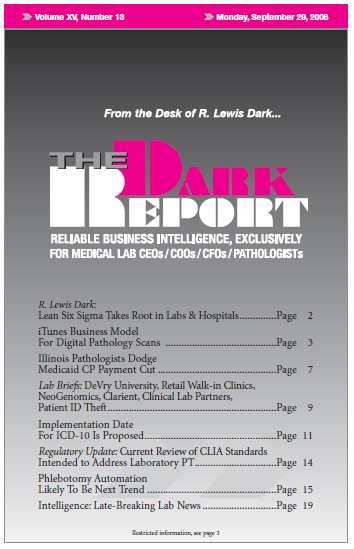CEO SUMMARY: Even though the transition from ICD-9 to ICD-10 will not be required until 2011, laboratories and pathology groups should have a transition plan in place. ICD-10’s 155,000 seven-digit codes will replace the 17,000 five-digit codes of ICD-9. Because of major changes in the design of ICD-10, extensive training of laboratory coders will be …
Implementation Date For ICD-10 Is Proposed Read More »
To access this post, you must purchase The Dark Report.


